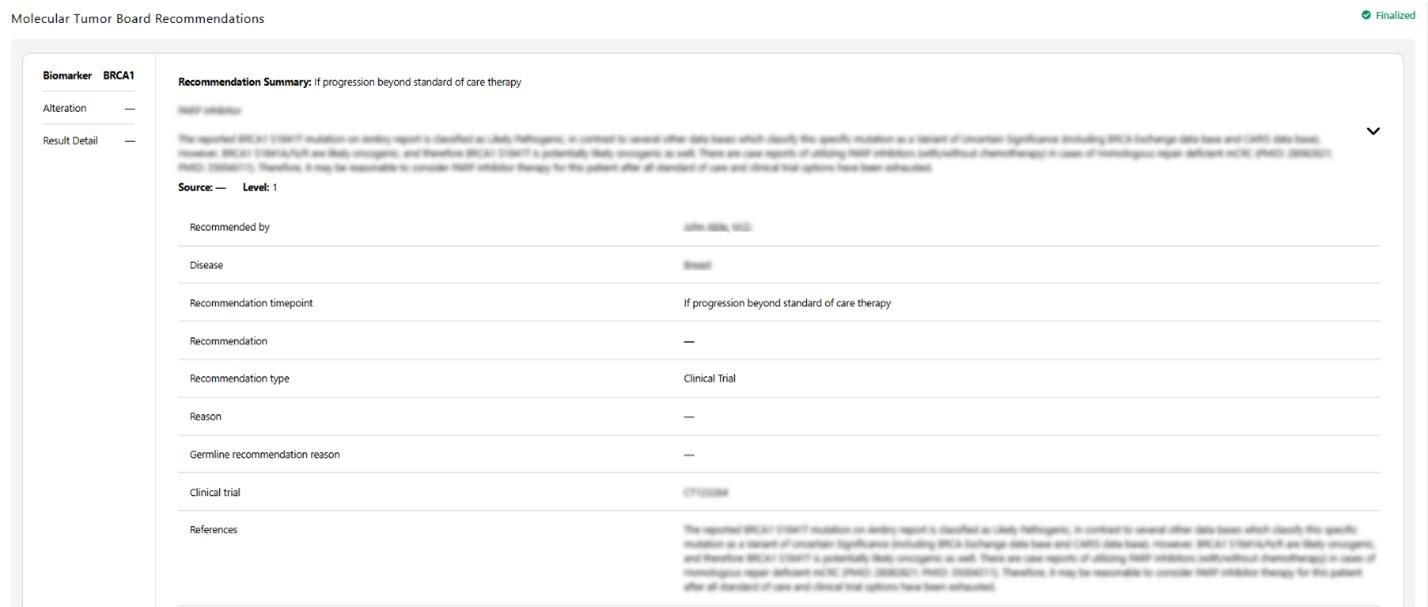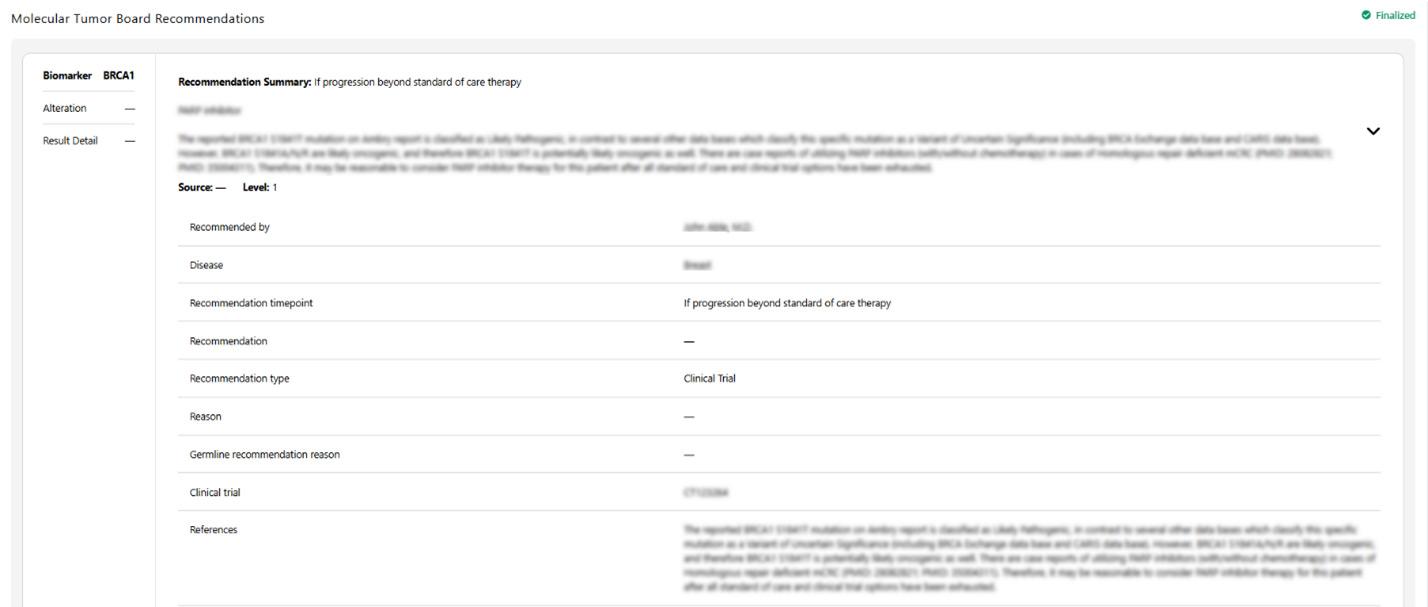Explore Our Provider Solutions

OncoLens Analytics
OncoLens Analytics is a powerful tool that delivers to multiple use cases by deriving insights from structured and unstructured clinical, lab and other data sets.
Analytics provides you with real time, turnkey, executive dashboards about your cancer service line operations, or clinical information ranging from automated registry abstraction to patient journey reports by cancer type.
Powered by AI/Large Language Models and our proprietary oncology focused knowledge models, we deliver to you:
-
Automated registry reports
-
Patient journey dashboards by cancer type/condition
-
Insights into your cancer care operations
-
Reporting for accreditation including CoC, NAPBC, NAPRC, QOPI and more




OncoLens Patient ID
OncoLens Patient ID delivers turnkey, real-time reporting and alerts for all your patient ID needs including clinical trials, biomarker testing, and key services like CAR-T or radioligand therapies.
With OncoLens Patient ID, cancer care teams ensure that no patient gets missed for potentially life-saving diagnostic or treatment options. Nurse navigator teams know we have their back as they pursue the best patient experience and outcome possible. While our solution is created and developed with AI/LLM tools and cutting-edge proprietary oncology knowledge models, we bring a high-touch, white glove service to the delivery of these solutions so they are customized to your needs and ready for use.
Schedule a demo to find more about how we can find and prevent both patient and revenue leakage points:
-
Clinical trials
-
CAR-T
-
Radioligand therapies
-
Targeted therapies
-
Incidental findings and more

OncoLens Conference
Designed to integrate seamlessly into clinical workflows, OncoLens Conference delivers evidence‑based protocols, trial opportunities, and quality prompts in real time.
OncoLens Conference also automates pathology and radiology data collection, streamlines accreditation tasks, drives in‑network referrals, and supports the standardization of care pathways across your network.

OncoLens Collaborate
OncoLens Collaborate enables asynchronous case submission and review and provides secure sharing of PACS studies, pathology images, and test results.
Schedule a demo to see how these features support real‑time collaboration both within your oncology program and with external institutions.
-
Strengthen relationships
-
Increase referrals by up to 50 percent
-
Improve physician engagement
-
Double guideline adherence
-
Boost clinical trial participation

OncoLens Molecular
Working in conjunction with OncoLens Conference, Oncolens Molecular supports specialized multi-disciplinary discussion and planning around biomarker-based treatment options.
Molecular module enables centers to build and search through prior treatment suggestions for similar patients in real time as well as suggestions from integrated lab partners including Caris, Guardant, Foundation Medicine, Tempus, Labcorp and others.
Schedule a demo to learn more.

OncoLens Research Network
Through the OncoLens Research Network, cancer centers access highly curated, revenue-driving opportunities for clinical trials, quality improvement and real world data initiatives from life science companies.
OncoLens becomes your business development arm conducting in-depth, pre-feasibility analyses before any opportunities are presented to you. Once a program is initiated, OncoLens takes on the work of pre-screening, data analytics and more.
-
Identify hard-to-find patients with specific mutations or misdiagnosis for hyper-targeted therapies
-
Address issues such as gaps in care and not just identify them
Accelerate the future of oncology with connected insights & intelligent collaboration
Schedule a demo and discover how OncoLens can help drive impact across care and research.
We are incredibly grateful for the insights gained through this project, which have led to significant improvements in our approach to genetic screening, testing, and documentation. One of the most impactful changes is that genetics is now a central topic in every tumor board discussion. This project has been a catalyst for transformative change.
Frequently Asked Questions
Why is a multidisciplinary approach important to the future of cancer care?
Cancer care increasingly relies on expertise from multiple disciplines to address the complexity of diagnoses, treatments, and outcomes. A multidisciplinary approach ensures that each patient benefits from a coordinated plan developed by a team of specialists, leading to more accurate decisions and better outcomes. OncoLens makes this model scalable by eliminating data silos, enabling real-time collaboration, and providing a centralized platform supported by AI and data analytics.
What is a tumor board and how can it improve patient outcomes?
According to the American Society of Clinical Oncologists (ASCO), a tumor board is “a group of doctors and other health care providers with different specialties that meets regularly at the hospital to discuss cancer cases and share knowledge.” Sometimes referred to as a cancer conference, tumor boards bring together pathologists, surgeons, oncologists, radiologists, and others to collaboratively review patient cases. These meetings support multidisciplinary care and precision medicine, surface clinical trial opportunities, and promote education and best practice sharing. OncoLens enhances this process by integrating all relevant data, automating case preparation, and enabling seamless collaboration ensuring that tumor boards are more efficient, informed, and impactful.
What is a molecular tumor board and how can genomic insights enhance case discussions?
A molecular tumor board brings together clinical and molecular experts to interpret genomic and biomarker data for complex cancer cases. These boards support precision medicine by identifying targeted therapies and clinical trials based on individual tumor biology. OncoLens enhances molecular tumor boards by integrating genomic data directly into case workflows, enabling efficient interpretation and discussion that supports personalized treatment recommendations.
What is oncology informatics and why is it critical for data driven cancer care?
Oncology informatics is the use of data systems and tools to collect, manage, and analyze cancer-related information to improve care delivery. It supports evidence-based decision-making, quality improvement, and operational efficiency. OncoLens enables oncology informatics by aggregating structured and unstructured data into a single, actionable platform, helping care teams and administrators make informed, real-time decisions.
What differentiates OncoLens from other solutions or EMR built tools?
Unlike generic EMR tools or point solutions, OncoLens is built specifically for cancer care. It consolidates case review, trial matching, CME tracking, and analytics into a single oncology-focused platform. With intelligent workflows, data integration, and support for multidisciplinary collaboration, OncoLens enhances both clinical and operational outcomes in ways EMRs are not designed to support.
How does OncoLens improve visibility into clinical trials and treatment options?
OncoLens uses AI to analyze structured and unstructured data from a center’s EMR to identify patients who may qualify for clinical trials. By integrating trial protocols into the platform, research teams gain real-time insight into potentially eligible patients and can act quickly to evaluate and engage them. This enhances the ability to connect patients with cutting-edge therapies and expands access to investigational treatment options.
How does OncoLens streamline CME tracking and reporting for my Tumor Boards?
OncoLens simplifies the CME process by automatically logging attendance, generating CME flyers, and producing the reports required by accrediting bodies. Reporting is available at the provider, tumor board, and organizational levels, making it easy to track progress and maintain compliance without manual effort.
How does OncoLens support accreditation requirements with minimal administrative burden?
OncoLens continuously monitors standards set by accrediting bodies such as the CoC, NAPBC, and NAPRC. The platform embeds required quality metrics directly into relevant workflows and case reviews, ensuring that necessary data is captured without added effort. Users can generate customized reports for each accrediting body at any time, eliminating the need to manually compile documentation. OncoLens also supports informatics solutions for additional accreditation programs, reach out to learn more.
What are the OncoLens EMR integration options?
OncoLens supports integration with leading ONC-certified EMRs such as Epic, Cerner, OncoEMR, athenahealth, Mosaiq, ARIA, and more. The platform eliminates dual data entry by consolidating and extracting critical information using natural language processing. This enables the creation of a longitudinal patient view that can be shared across clinical teams and networks, enhancing the EMR experience while reducing workflow inefficiencies.
How is cancer registry compatibility handled to ensure seamless data flow?
OncoLens supports structured data exports in formats compatible with leading cancer registry software, enabling streamlined data submission and reducing abstraction redundancy.
What is Registry Automation and how does it work?
Registry Automation is the automated abstraction of data required to be submitted to the cancer registry. Through AI and OncoLens’ proprietary knowledge model, data that can take hours to be abstracted is extracted from the structured and unstructured information in the HER and delivered in a format that can easily be edited by the cancer registry team. This includes staging, tumor sizing, pathology, treatment dates, biomarker information and more.
What kind of security and compliance features does OncoLens provide?
OncoLens is fully HIPAA compliant, SOC2 certified and includes advanced security options such as single sign on (SSO) to drive better security, ease of use, and flexibility.
How does Oncolens support and optimize clinical trial workflows at my facility?
OncoLens supports clinical trial workflows by using AI to screen structured and unstructured EMR data to identify eligible patients. The platform integrates trial protocols, enabling research teams to efficiently evaluate matches, reduce missed opportunities, and track enrollment activity in real time. This streamlines trial operations and expands access to potentially life-extending therapies.
What rare diseases or biomarker defined patient cohorts can OncoLens effectively identify?
Using AI and NLP, OncoLens can detect patients with rare cancers, uncommon genetic variants, or underrepresented biomarker profiles, making it easier to identify candidates for precision therapies or niche clinical trials.
How can we ensure equitable access to biomarker testing across our patient population?
OncoLens provides dashboards and gap analyses to monitor testing rates by site, race, age, and tumor type. This helps identify disparities and guides interventions to standardize and improve equitable access.
How can we accelerate patient matching for clinical trials using AI?
OncoLens uses AI to analyze structured and unstructured EHR data to identify trial-eligible patients in real time. By continuously screening patient records against active trial protocols, the platform helps research teams act quickly on matches and increase accrual without relying on manual chart reviews.
How can we automate data abstraction and preparation for our tumor board meetings?
OncoLens auto-generates tumor board packets by pulling relevant clinical, pathology, imaging, and biomarker data from the EMR. This reduces prep time and ensures standardized, complete case summaries.
How can we access real time dashboards to monitor cancer service‑line performance and outcomes?
OncoLens offers dashboards that track metrics like tumor board volume, biomarker testing rates, clinical trial enrollment, and guideline adherence, providing actionable insights at the program, facility, or network level.
What does OncoLens provide to support value-based care outcomes?
OncoLens supports value-based care by aligning clinical workflows with evidence-based guidelines, tracking quality measures, and identifying gaps in care delivery. The platform helps care teams monitor performance and ensure consistent, high-quality treatment across the cancer service line.
How can we leverage our real world data to uncover quality improvement opportunities?
OncoLens aggregates and analyzes clinical data across tumor types, facilities, and patient populations. The platform tracks metrics such as treatment rates, testing rates, and demographic trends to identify gaps in care, variation in practice, and opportunities for standardization. These insights support data-driven quality improvement initiatives, inform strategic planning, and help meet accreditation and performance goals.

